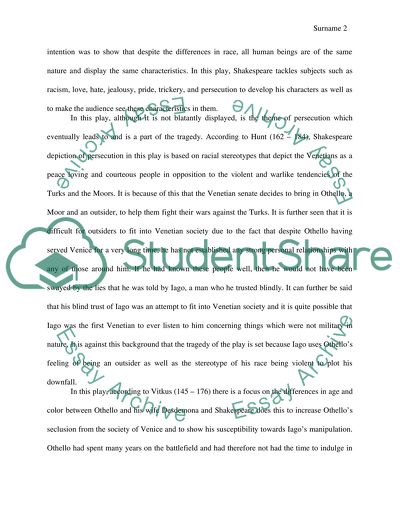Cite this document
(“William Shakespears's Othello, the moor of Venice as a tragedy Research Paper”, n.d.)
Retrieved from https://studentshare.org/literature/1455922-william-shakespears-s-othello-the-moor-of-venice
Retrieved from https://studentshare.org/literature/1455922-william-shakespears-s-othello-the-moor-of-venice
(William Shakespears'S Othello, the Moor of Venice As a Tragedy Research Paper)
https://studentshare.org/literature/1455922-william-shakespears-s-othello-the-moor-of-venice.
https://studentshare.org/literature/1455922-william-shakespears-s-othello-the-moor-of-venice.
“William Shakespears'S Othello, the Moor of Venice As a Tragedy Research Paper”, n.d. https://studentshare.org/literature/1455922-william-shakespears-s-othello-the-moor-of-venice.


